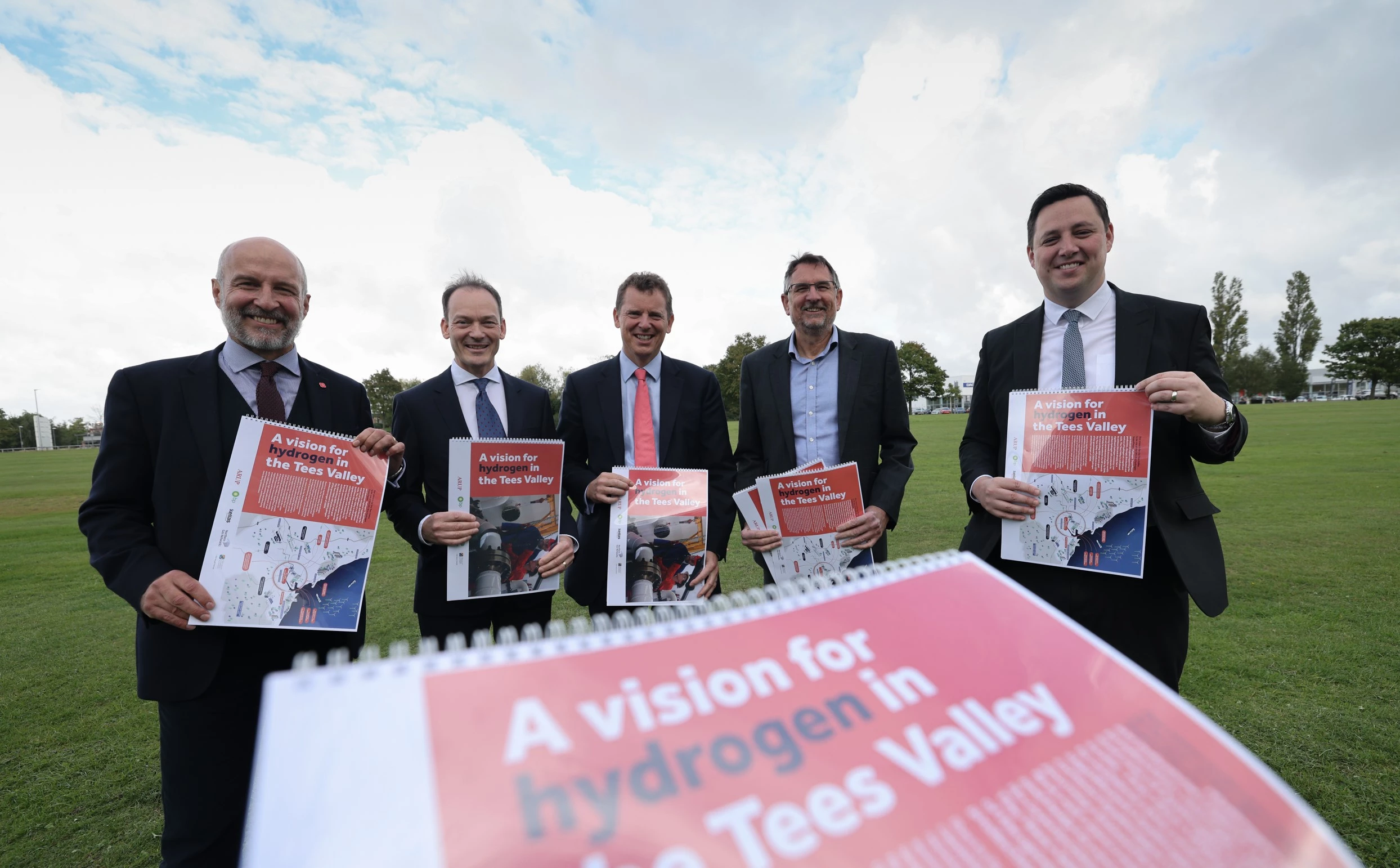
The Tees Valley’s hydrogen sector lays the foundations for the world’s first net zero industrial cluster
The Tees Valley’s pioneering hydrogen sector is laying the foundation for the world’s first net zero industrial cluster with a new paper published today setting out how the region will lead the UK in its energy ambitions.
A Vision for Hydrogen on the Tees Valley details how the area can become globally significant in the production, consumption and export of low carbon hydrogen, while supporting emerging carbon capture, utilisation and storage initiatives and safeguarding and creating thousands of high-quality jobs.
By 2040, the report sees hydrogen supporting the Tees Valley’s aim to become one of the world’s first decarbonised industrial clusters, helping to accelerate the UK’s overarching 2050 net zero goal.
Leading organisations operating in the region are already showing their commitment to new low carbon hydrogen production projects with many businesses using it to decarbonise their operations. New production projects could see at least 2.5GW of hydrogen production capacity in Teesside by 2030.
This is a quarter of the government’s ambition for 10GW of low carbon hydrogen production by the end of the decade, which was recently doubled from 5GW. This shows that the essential elements for a whole-system hydrogen “SuperPlace” are already at the heart of the area.
Capitalising on these strengths will support the production and local use of hydrogen as a fuel and feedstock for current and new industries and businesses, helping them to decarbonise, adapt, grow, and thrive. It could also play a central role in accelerating the use of the fuel in transport and help position Teesside as the UK’s Hydrogen Transport Hub.
The report has been developed by a consortium of key stakeholders consisting of the Tees Valley Mayor and Combined Authority, Arup, bp, Kellas Midstream and Northern Gas Networks (NGN), the driving forces behind innovative projects in the sector.
Tees Valley Mayor, Ben Houchen, said: “Our region is at the forefront of the UK’s clean energy ambitions, with transformative projects secured in low carbon and offshore sectors. Teesside already produces around half of the UK’s hydrogen, so we’re well-placed to become a leading force and ‘SuperPlace’ in the production, storage, distribution, and use of hydrogen for green projects of global significance.
“This landmark study sets out how hydrogen will bring the well-paid, high-quality jobs of the future to Teesside, Darlington and Hartlepool as our green economy continues to grow. If we seize the opportunity that stands before us today, our region can be to hydrogen in the 21st century what it was to steel and chemicals in the 19th and 20th.”
Andy Mace, director, Energy, Water, Resources at Arup, said: “We will need stakeholders to come together behind a shared vision of the Tees Valley as a hydrogen powered SuperPlace, and to act collaboratively and coherently, driving the transition to an economic and energy engine room for the North and the UK.”
By Mark Adair – Correspondent, Bdaily
- Add me on LinkedIn and Twitter to keep up to date
- And follow Bdaily on Facebook, Twitter and LinkedIn
- Submit press releases to editor@bdaily.co.uk for consideration
Looking to promote your product/service to SME businesses in your region? Find out how Bdaily can help →
Enjoy the read? Get Bdaily delivered.
Sign up to receive our daily bulletin, sent to your inbox, for free.




 test article 123456789
test article 123456789
 hmcmh89cg45mh98-cg45hm89-
hmcmh89cg45mh98-cg45hm89-
 test456456456456456456
test456456456456456456
 test123123123123123123
test123123123123123123
 test xxxdiosphfjpodskhfiuodsh
test xxxdiosphfjpodskhfiuodsh
 Savour the flavour: North Tyneside Restaurant Week returns for 2024
Savour the flavour: North Tyneside Restaurant Week returns for 2024
 Six steps to finding the right buyer for your business
Six steps to finding the right buyer for your business
 Stephen signs off on a special night
Stephen signs off on a special night
 Life’s a Peachaus: Gillian Ridley Whittle
Life’s a Peachaus: Gillian Ridley Whittle
 Making a splash: Phil Groom
Making a splash: Phil Groom
 Making workplace wellbeing a priority
Making workplace wellbeing a priority
 A record of delivery, a promise of more: Ben Houchen
A record of delivery, a promise of more: Ben Houchen